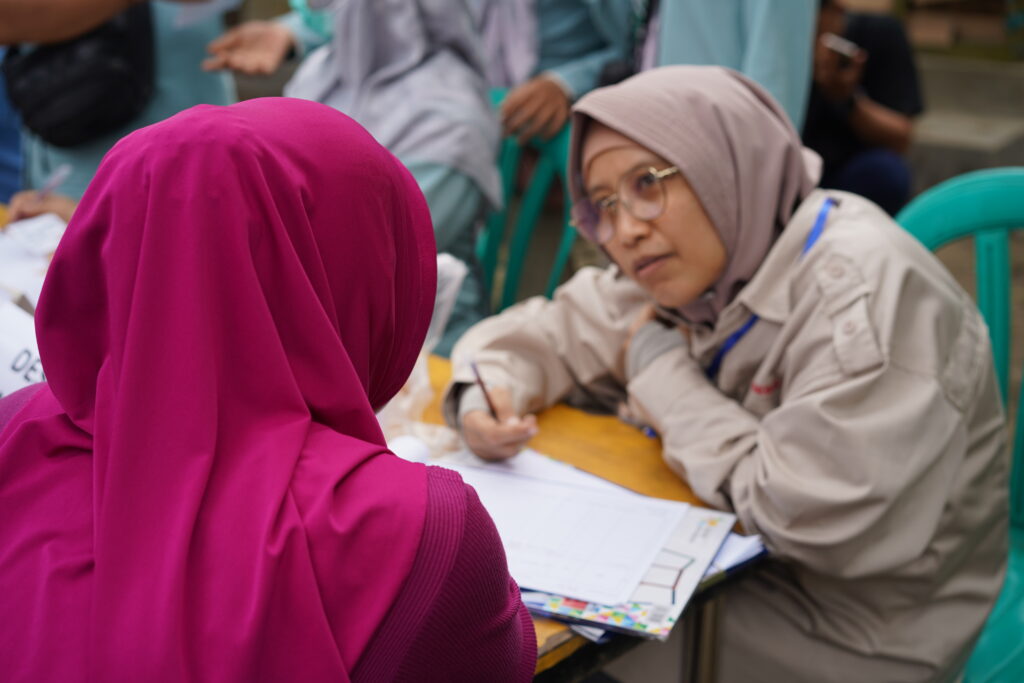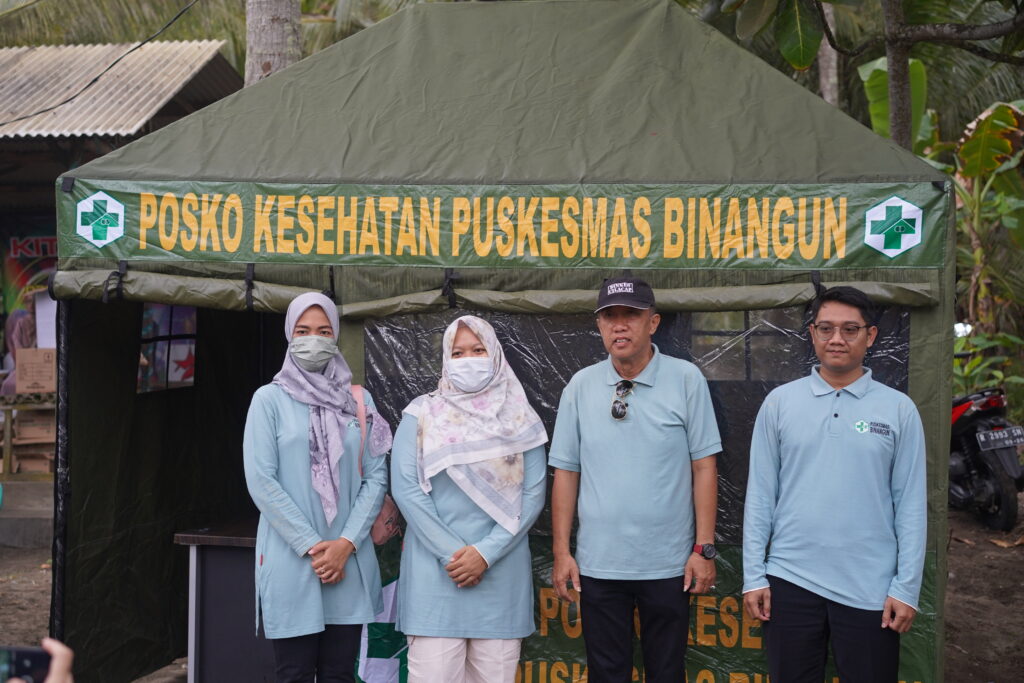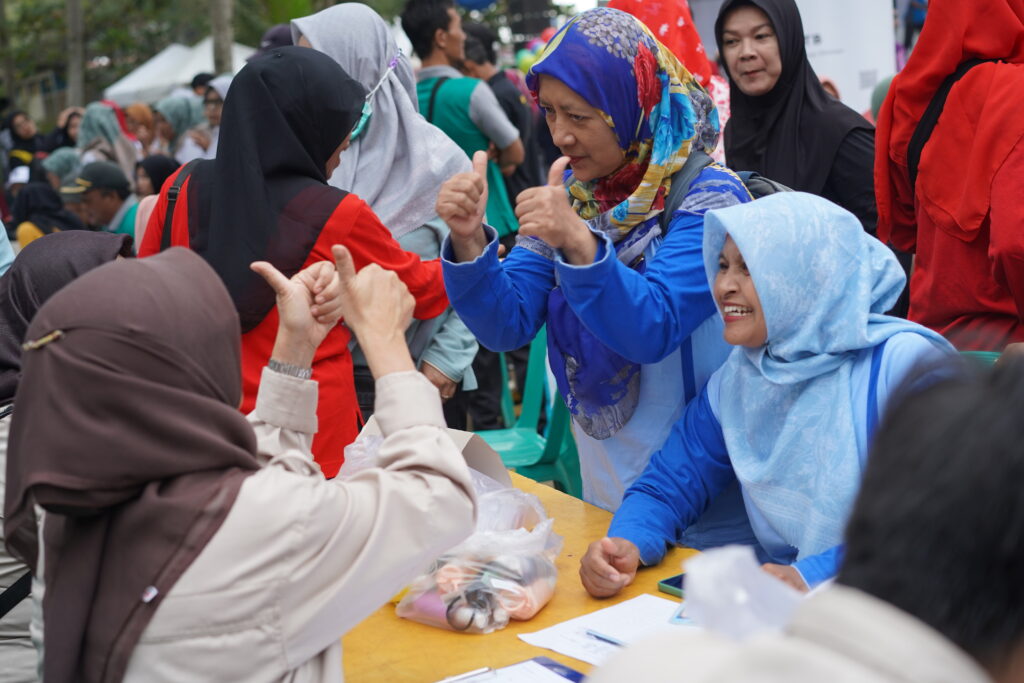Gotong Royong: Indonesian Villages Lead the Charge in TB Elimination
Gotong Royong: Indonesian Villages Lead the Charge in TB Elimination

TB elimination efforts in villages across Indonesia have faced immense challenges in funding. However, in 2014, new legislation directing central government funds to village governments—now exceeding USD $5 billion annually—enhanced economic opportunity and improved living standards for residents of more than 75,000 villages across the country. Even with additional funding, health priorities, including TB control, were often overlooked in favor of other projects. A pivotal presidential regulation announced in 2021 further encouraged village governments to prioritize TB elimination, clearing the way for village funds to support TB-focused initiatives.

Villages have responded swiftly by implementing impactful activities, such as providing nutritional support for TB patients, improving the capacity of health workers, and conducting contact tracing.
Siti Saudah, a midwife in Tegalsari Village, Malang District, noted the positive impact of the additional village funds on patient care: “Most locations here are far from primary health care facilities. With village funds, we can provide monthly medications, ensure patients adhere to treatment, and collect sputum samples regularly to monitor patients’ progress.”
This shift reflects the spirit of gotong royong—a core Indonesian value of collective action and shared responsibility.
Villages Working Together for a Healthier Future
Since January 2024, the USAID-funded Bersama Menuju Eliminasi dan Bebas dari TB (USAID BEBAS-TB), implemented by MSH, has worked with local governments to maximize the potential of these village funds. In Cilacap District, Central Java, a pioneering TB-Alert Village model is integrating TB-elimination activities into village planning and budgets. A pilot program in 17 villages of Binangun subdistrict is bringing together TB survivors, patients, and their families to participate in community-driven solutions. The goal is to establish the pilot program as a TB-Alert Village model that other districts can implement.
From May to July 2024, Binangun launched health promotion activities involving schools, religious communities, local governments, and women’s empowerment groups. These advocacy efforts culminated in the Regent of Cilacap committing to accelerate scale up across 24 subdistricts and 269 subvillages. Binangun is now poised to become a knowledge hub for TB elimination, inspiring neighboring districts to adopt its model. Currently, only 42% of the estimated TB cases in Binangun have been diagnosed, underscoring the need for collective effort. Agus Wantoso, Head of Binangun, shares his vision: “Health is a shared responsibility. It’s not only the job of the district health office, primary health care providers, or midwives; every individual has a vital role to play. Together, we can create a healthier and more resilient community.”
Turning Policy into Action

Although still in its early stages, the TB-Alert Village model demonstrates how village-level leadership, supported by enabling policies, can drive sustainable public health gains. USAID BEBAS-TB’s technical support has empowered local officials to monitor results and use data to refine strategies. The program has also collaborated with Indonesia’s Ministries of Health, Villages, and Home Affairs to prepare official guidance for scaling up TB-Alert Villages nationwide.
In addition, USAID BEBAS-TB has established TB elimination task forces across 4 provinces and 11 districts, detailing stakeholder roles and funding mechanisms. This integrated approach ensures that resources are mobilized effectively, accelerating progress toward TB elimination. “USAID BEBAS-TB has served as a strategic partner, assisting in policy design and decision-making, while also mobilizing local government leadership and civil society for TB initiatives. Their technical support helps us translate the presidential regulation into concrete action effectively,” explained Jarot Prasogo, In-Charge for the Cilacap Regional Secretary.
By coordinating government funding across the public and private sectors and engaging local communities, the TB-Alert Village model and other task force-driven initiatives demonstrate how Indonesia is putting policy into action. These efforts aim to accelerate TB elimination while laying the groundwork for scaling up successful programs nationwide.
These collaborative, village-lead approaches not only drive significant advancements toward eliminating TB in Indonesia but also serve as a model for strengthening public health systems across the country. They exemplify how collective action and local leadership can turn ambitious health policies into lasting change, advancing progress toward universal health coverage and healthier communities for all.
